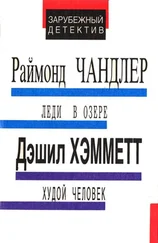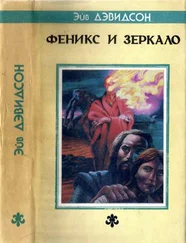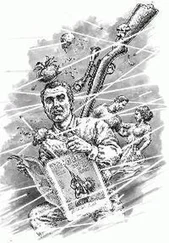Аврам Дэвидсон - Peregrine - primus
Здесь есть возможность читать онлайн «Аврам Дэвидсон - Peregrine - primus» весь текст электронной книги совершенно бесплатно (целиком полную версию без сокращений). В некоторых случаях можно слушать аудио, скачать через торрент в формате fb2 и присутствует краткое содержание. Год выпуска: 1971, ISBN: 1971, Издательство: New York : Walker, Жанр: sf_all, на английском языке. Описание произведения, (предисловие) а так же отзывы посетителей доступны на портале библиотеки ЛибКат.
- Название:Peregrine : primus
- Автор:
- Издательство:New York : Walker
- Жанр:
- Год:1971
- ISBN:0802755461
- Рейтинг книги:5 / 5. Голосов: 1
-
Избранное:Добавить в избранное
- Отзывы:
-
Ваша оценка:
- 100
- 1
- 2
- 3
- 4
- 5
Peregrine : primus: краткое содержание, описание и аннотация
Предлагаем к чтению аннотацию, описание, краткое содержание или предисловие (зависит от того, что написал сам автор книги «Peregrine : primus»). Если вы не нашли необходимую информацию о книге — напишите в комментариях, мы постараемся отыскать её.
Peregrine : primus — читать онлайн бесплатно полную книгу (весь текст) целиком
Ниже представлен текст книги, разбитый по страницам. Система сохранения места последней прочитанной страницы, позволяет с удобством читать онлайн бесплатно книгу «Peregrine : primus», без необходимости каждый раз заново искать на чём Вы остановились. Поставьте закладку, и сможете в любой момент перейти на страницу, на которой закончили чтение.
Интервал:
Закладка:
the greatest to say that to a young man of healthy appetites, even the joys of breaded kids’ kidneys, of suckling pigs with truffles in their noses (to say nothing of judging beauty contests and then taking the winners out for a little wine and frolic), could pall—still . . . still . . . something seemed to gnaw and to nibble on the periphery of Peregrine’s mind.
He found Darlangius engaged with his Chief Herald in the task of drawing up coats of arms for the Sanitary Disposal Corps, and evidently not pleased with the sample in hand. “A swine sejant on a mess—I suppose that’s meant to be fess, but mess would be better—take it away, I’ve never seen such bumtwaddle in my life. Look here, simply incorporate them as the Guild of Saint, oh, Saint . . . well, ask my chaplain to pick a nice vacant saint, and have him painted on the biggest banner they can carry: Guild of Saint Vacantsaint. Patron: HH The Caesar. And twice a year they can carry it in procession, and after that there’ll be a bean-feast, paid for out of the garbage rates. —Ah, Peregrine, my young friend! Draw up a curule stool. —Very well, Bumpus, that will be all.”
(It was, however, not quite all. Bumpus, who was simply not with it save in his niche as Chief Herald, stolidly went and informed the Chaplain of the Domicile that HH wanted prepared a big banner of SaintVacantsaint; the chaplain, a distant and poor relation, who had already been twice unfrocked—once, for clandestine nose-picking during Lent, and once for open and notorious omphiloskepsis—and had not fully realized his present good fortune and security, promptly went into a dither. It was (he felt) out of the question to admit that he had never heard of any Saint Vacantsaint. So he retrieved an image which had been so badly disfigured during the Iconoclastic outrages that no one really knew whose it was, and turned it over to the bannerpainter to be used as a model. The banner-painter operated on the serene and simple principle of, Whatever is, is right—or, Don’t rock the boat. He painted the saint large, but he painted him as he saw him, to wit: without a nose. And wit was soon to find an explanation, namely that this was so much the better, for thus the Saint was unable to smell the muck-carts. The muckmen were men of a robust, not to say coarse, humor, and this pleased them mightily. “That ’ere noo Caesar, ’e do be a caution!” they guffawed. “So much the better as Saint Vacantsaint
’ave no nose, for so ’e can’t smell they muck-carts, har har har!” Legend promptly revealed that the saint had lost this member at the hands of a wicked pagan emperor, and in no time at all he was curing piles, scabies, bad dreams, trench-mouth, the common cold, crossed conditions, husband-come-home, and inevitably, and perhaps with some slight assistance from a vigorous choir-boy—barrenness. A century later, chroniclers were still writing, in uncials and miniscules, But in ye days of Darlangius Cye Faith Jlourishd.)
“What’s on your mind, my boy? You getting much?”
“Oh, I get enough . .
“Nonsense. No man ever gets enough. There’s either not enough or there’s too much, and the last man who had too much died sometime before Caligula’s horse. —Not, I hasten to imply, that I mean to imply anything against any of my predecessors in the consulate. There was nothing queer about Caligula’s horse.”
“Well, I—”
“Nothing queer about him. Probably performed his consular duties as well as many, too. As for his master, my august ancestor under the principle of spiritual consanguinity, well, he and Black Pete probably have a lot to talk over together on the Stygian Riviera. Come, come, speak up, I’m a rich, busy man,” he declared, lying back on his couch, and nibbling rapidly at a bunch of grapes. “What’s on your mind?”
Peregrine said, somewhat slowly, that he was wondering about the “young woman of good family” at whose home the soldiers of Petronius Niger came looking for Austin. “Do you suppose,” he suggested, “that she might have some idea as to where he went? . . .”
“He went out the backway and over the wall, is all I know. But then, hm, you didn’t ask if / had any idea, you asked if she might. I don’t know. Why don’t you ask her?’’
“Well, for one thing, I don’t know who she is. Or where she lives. Or—”
“That will do, that will do. Stop, before you make things harder. Well, her name is Clothilda, and she lives on the Flaminian Way, and—”
“What, in Rome?’’
“No, not in Rome. Drink deeply, or touch not the Pierian
spring—I found that in a fortune cooky once —every provincial capital has its Flaminian Way, just as it has its Hippodrome, its Pantheon—formerly devoted to the worship of abominations—, and so on. This Flaminian Way used to be the most fashionable residential area in town, but that was before the Christians started moving into it. However, there are still a number of nicely kept-up villas there.
“And one of the nicest is that of T. Pomponius Sulla. Tell him I sent you.”
The name rang no semantrons in Peregrine’s mind. “T. Pomponius Sulla,” he said, blankly. “Who is he?”
Said Caesar, “He’s Clothilda’s husband.”
t t t t
The Villa Sulla had not been subdivided to make room for the multitudes of countrypeople who were still swarming into the cities of the Central Roman Empire as life in the rurals became daily more hazardous; unlike many of the other properties, then, even as Caesar had hinted, on the Flaminian Way, it had not become a human rabbit-warren. Its trim lawn and clipped hedges testified to the existence of a staff as silent and semi-invisible as they were efficient. It was perhaps as the result of the changing neighborhood that the walls surrounding this area of grace and opulence were pierced on the street side only by a single door, and that at Peregrine’s knock this door did not swing open: but another and very tiny door did open in the upper part of the greater, and through this small aperture an eye regarded him without blinking.
“Caesar sent me,” said Peregrine.
T. Pomponius Sulla, despite his very Roman-sounding name, very apparently originated under a much hotter sun than that which shines on Father Tiber’s shores ... to say nothing of shores father north. Without regard to current fashion, he was smooth-shaven, and his almost white hair was clipped very close to his head. Head and shoulders were bent, as Peregrine approached, though neither this nor the whiteness of the host’s hair seemed in any way to indicate great age. To one side of the mar
ble bench in the garden on which Sulla was sitting a lector stood with a scroll open in his hands, reading aloud.
Death at the headland, Hesiod, long ago
Gave thee to drink of his unhoneyed wine.
Now Boreas cannot harm thee,Jlying low —
Sulla raised his head and his hand, and the lector ceased as though sheared off with a scissors. Dark, glowing eyes regarded Peregrine with an enigmatic calm, and, as the young man gazed at and into them, he perceived that they were after all not so dark as he had thought, being nearer to yellow than to brown, and flecked with gold, which seemed slowly to shift and drift. T. Pomponius Sulla raised a hand again, and at once, as though waiting all the while, a chair appeared . . . and a small table . . . wine . . . water ... a mixing bowl... a goblet was gently placed in Peregrine’s hands.
“Welcome, sir ... I think that I do not say, Citizen?”
Peregrine nodded. “That is to say, not that you are not of rank to be a citizen,” a faint, polite smile briefly acknowledged the absurdity of this possibility, vanished at once, “but that you are, 1 believe, that rather rara avis, a foreigner who is not a barbarian.” Sulla’s own Latin was more than flawless, it was beautiful, and seemed enriched, now and then, with traces of another accent . . . Punic, perhaps? or Numidian? . . . which Peregrine, with his limited experience and knowledge, could not identify. He though vaguely of this, and vaguely of other things, and was vaguely aware that his host’s eyes had gone past him and were looking at his hands, or, rather at what his hands were doing, or had only just done. And then he went a trifle cold, as he realized that without thinking he had done something which he had not done in some while: he had poured a libation.
Читать дальшеИнтервал:
Закладка:
Похожие книги на «Peregrine : primus»
Представляем Вашему вниманию похожие книги на «Peregrine : primus» списком для выбора. Мы отобрали схожую по названию и смыслу литературу в надежде предоставить читателям больше вариантов отыскать новые, интересные, ещё непрочитанные произведения.
Обсуждение, отзывы о книге «Peregrine : primus» и просто собственные мнения читателей. Оставьте ваши комментарии, напишите, что Вы думаете о произведении, его смысле или главных героях. Укажите что конкретно понравилось, а что нет, и почему Вы так считаете.






